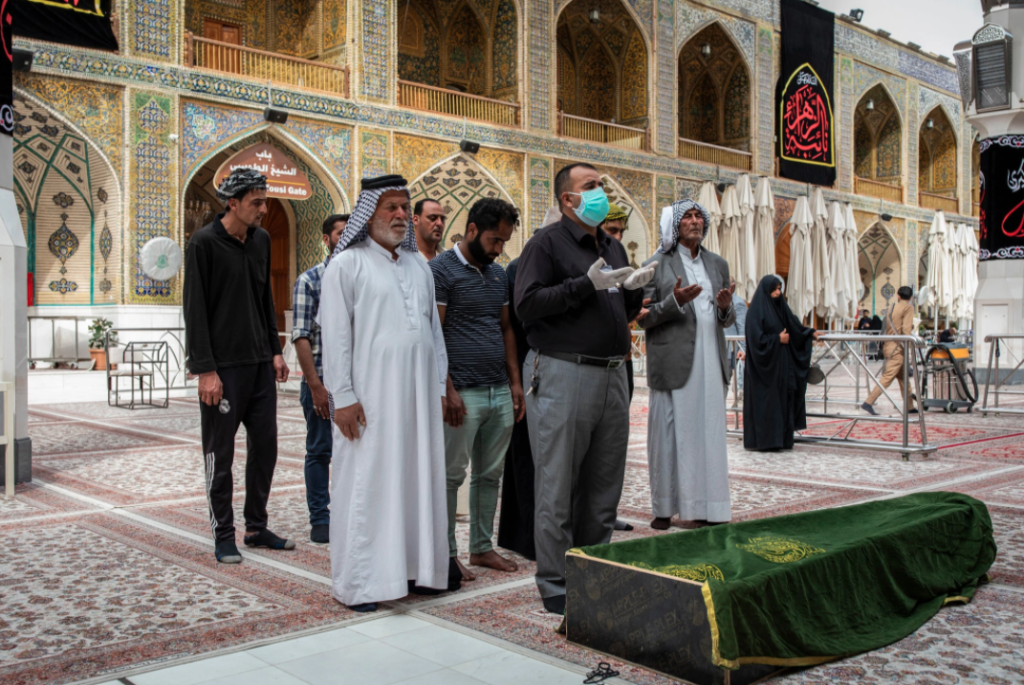Coronavirus in Shame Contexts
A recent NYT article “Stigma Hampers Iraqi Efforts to Fight the Coronovirus” examines how the dynamics of shame are affecting Iraq during this pandemic. This article is a fresh reminder of how pervasive and influential the power of shame is in collectivistic societies. For me, this article was insightful at a cultural level, but also evoked in me a compassion for the people of Iraq.

If you work/live in an honor-shame context, you should read this article in order to better anticipate how people around you may respond to the health crisis. In short, people may prioritize social status over physical health, often in unanticipated ways. For most people, “Honor > Life.” People respond to crises in different ways. So you should not assume other people and cultures will have the same response.
In my estimation, the need to understand shame dynamics in the face of coronavirus will become increasingly important in the upcoming months. Until now, the countries hardest hit by coronavirus have been developed nations, which are more individualistic. In the near future, the virus may spread through developing contexts, which tend to be more collectivistic and honor-shame oriented. I won’t explain the causation or correlation here, but will just state this point: What is happening now in Iraq, will likely happen more and more.
Here are four of the shame-issues from the article.
1. The Shame of Sickness
People resist testing because they do not want their neighbors to learn they are sick. The stigma of illness is so deep, people avoid testing altogether. The father of a family told health workers, “Please don’t park in front of our house. I feel ashamed in front of the neighbors. This is so difficult for my reputation.”
In many religious contexts, people equate sickness with sin (cf. John 9). They assume that sickness is a divine punishment. And naturally, people will avoid such “sinners.” In this way, coronavirus has a layer of religion-sanctioned shame.
2. Burial Concerns
Burial practices are (unexplainably) significant in collectivistic contexts. Where, when, and how a person gets buried is the ultimate expression of their status in the community. Iraqi culture requires family to immediately cleanse and bury the deceased body, preferably within 24 hours. But what happens in a pandemic when bodies are abandoned, lost, or buried in mass graves? Well, they are “forgotten” by their family because their death cannot be properly commemorated. Such post-mortem desecration of the corpse is the ultimate disgrace. So, people opt to die in their home to ensure a proper burial, rather than go to a hospital and risk an improper burial.
3. Fear of Isolation
In collectivistic contexts, people don’t want to be quarantined alone. People in Western cultures are used to being alone and enjoy privacy. But in many cultures people live with an extended family in a small space. So solitude and privacy are not only foreign, but dreadful. The constant company of other people provides security and familiarity; spending 14 days in solitude seems horrendous.
4. Protecting Family Honor
The risk of sickness and quarantine risks the family honor. If a man gets sick, he is no longer able to protect his wife and children, especially if he is quarantined away from the home. A similar logic applies to women. Some families fear that a sick female relative will be removed from the house and thus be sexually vulnerable. The surest way to preserve the family honor is to keep everyone together, regardless of health risks.
Conclusion
These social values hamper efforts to fight the epidemic. But, expecting people to jettison their ingrained cultural values for public safety is not a realistic solution. The power of shame simply runs too deep. There must be ways to help people preserve their health and their honor, lest they be forced to choose one over the other.

Writing from Botswana in Africa, this article was almost familiar to me, as similar issues also filled the fight against HIV here in the last couple of decades, as the stigma was a huge issue.
It will be interesting to see how things play out in the African context with COVID-19 as there will still be issues of stigma, and honouring elders (especially with proper burial), and isolation. I have already seen many messages going around highlighting (as a motivation to stay at home and prevent the spread) that those who die of COVID-19 die ‘alone’ without family present.
Thanks for sharing that, Sandra. Makes sense that the fear of dying alone would be a powerful motivator.
Excellent article.
We observe that with respect to Italy and Spain. They are more collectivist than Germany is, which in the end costs many lives. For individualists it is extremely hard to deal with such issues, much less understand them.